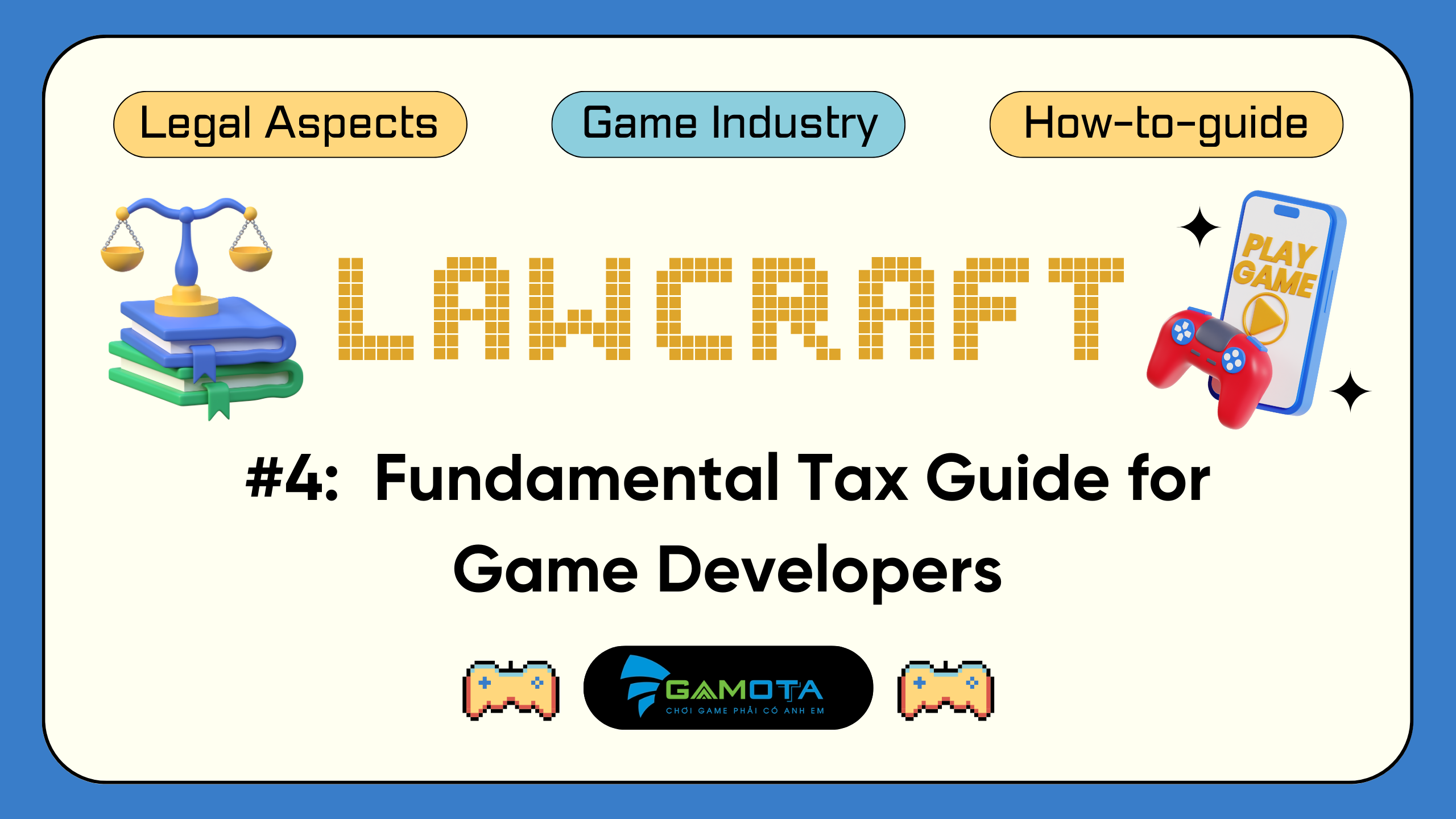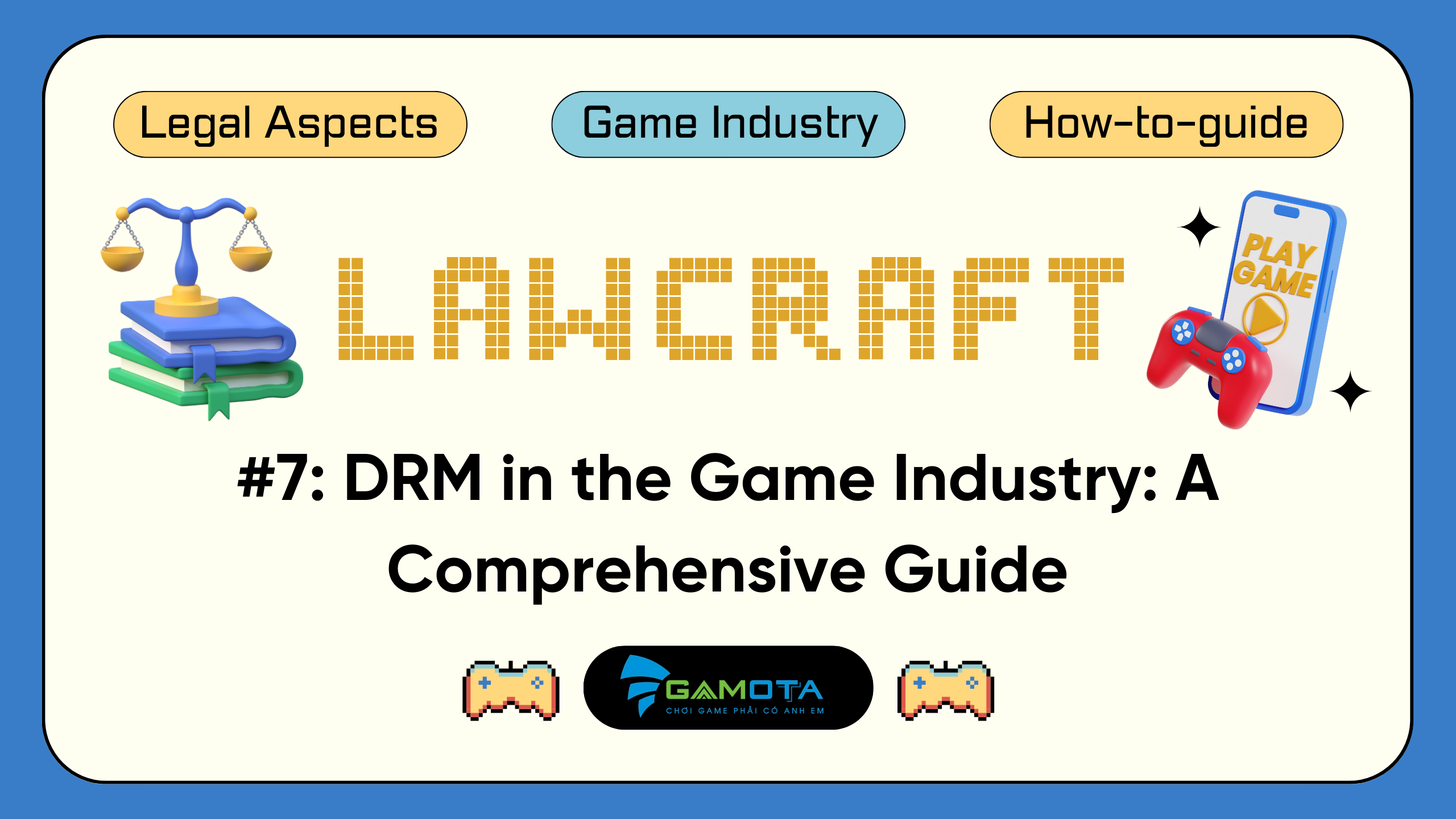Are you a game developer ready to conquer the global market with your creations? We don’t want to be the bearer of bad news, but there is one thing you guys all have to encounter. Indeed, it is tax and it sounds terrifying, we know but as you embark on this exciting journey, it’s essential to understand tax issues. For your own good really because the more you know about law and all, the higher chance of you staying away from legal issues. Selling games internationally brings with it a complex landscape of taxation, and don’t be afraid of its lame nature. In this fundamental tax guide, we will include the core insights for you to navigate it successfully.
Disclaimer: You should take note that we are not legal consultants or counselors. However, we are an enterprise that has dealt with so much paperwork, and legal documents to bring the best entertainment experience tailored to our customers. We are delivering messages based on our work ethics, experience, and of course, objective standpoint accumulated from ups and downs. Therefore, keep this article as a checklist for a piece of mind. Okay, now let’s get started
Understanding the Business of Game Development
Balancing your creative aspirations with business realities is crucial. To succeed, you need to view game development not only as an artistic pursuit but also as a commercial endeavor. Game development must be a unique blend of creativity and commerce, and as a developer, you’re bound to make money and set your mark on the international gaming stage is preferable to domestic. You created a good game and you should be rewarded for that right? Thus, understanding the tax implications associated with selling games globally is vital to your success.

Taxation’s Role in Government Revenue
Taxes play a pivotal role in funding public services and government operations. In fact, According to the most recent International Center for Tax and Development estimates, overall tax collections account for more than 80% of total government revenue in around half of the world’s countries—and more than 50% in practically every country. Therefore, a booming billion-dollar industry like the game industry will face numerous imposed taxes. It’s a large pie after all and as a game developer, your contributions to taxation help fuel essential services that benefit societies

Tax Patterns Across Countries
Taxation patterns across countries vary significantly, with developed countries relying more on income taxation as a percentage of their GDP and developing countries relying more on trade and consumption taxes. Corporate tax rates also vary across countries. For example, in 2022, Colombia increased its top corporate tax rate from 31% to 35%, while South Sudan increased its rate from 25% to 30%
Okay, finish the general information, now let’s hop to the key point that game developers should take notice
Digital Goods and VAT Regulations
As game commerce is primarily in digital form, you should know that for digital goods, global taxation rules change on a regular basis. For example, in the European Union alone, digital enterprises that sell their goods in Europe must apply, collect, and return VAT (Value Added Tax, a consumption tax on consumer expenditure) against all client invoices. If you sell to VAT-registered enterprises, they are exempt via a reverse-charge VAT, but you must have their VAT registration details.

Tax on Online Game Conditions in Vietnam
Many taxes apply to game companies based in Vietnam, including 10% VAT, 10% contractor tax when working with partners outside of Vietnam, 5-35 percent personal income tax, and 20% corporate income tax. With “taxes stack up taxes” like that, a special consumption tax is not passed and is not included in the tax implication law on online games. Vietnam is a lucrative market for online games as the game industry in Vietnam is predicted to generate $1 billion in revenue by 2025.

However, foreign businesses can set up their own legal entity in Vietnam, such as a company, branch, or representative office, it’s important to note that foreign ownership in this case is typically limited to a maximum of 49% of the company’s capital. The remaining 51% must be held by Vietnamese individuals or organizations. Meaning that they must hire Vietnamese people and have Vietnamese stakeholders. For example, Garena established its branch in Vietnam in 2009, has its own domain name: garena.vn, and operates as a Vietnamese company, complying with Vietnamese government law from tax to labor law,….
Therefore, if you don’t want to deal with all of that. It’s better to collab with a game publisher in this case as they will provide all the necessary resources and services to develop your game’s local presence with proper user acquisition strategies
Read More on Super Effective User Acquisition Strategies for Mobile Game
Some Steps to Take
When selling internationally, hiring tax professionals who understand digital goods and international taxation can be a game-changer. Effective communication with tax experts is vital as you must know how the whole process work. But, not anyone can afford to hire a tax professional who usually charges an hour for consulting. There will be times when the experts don’t really know how the game industry function and just In that case, you should take advantage of the more cost-effective resources
- Volunteer assistance programs like VITA, and international trade agencies provide valuable resources for developers seeking to understand and manage their tax responsibilities.
- You should also collaborate with merchant of Record (MOR) services. MOR is like a person or organization that plays a crucial role in handling payments, taxes, compliance, and risk for global online sales. They are held liable by the bank to process end consumer’s credit and debit card payments via payment gateway. Collaborating with MOR service providers simplifies tax complexities. While MOR services handle many tax-related tasks, maintaining accurate records and open communication is essential for seamless financial operations. MOR services like Xsolla will help you save a lot of time researching, the only goal for you is to develop a blockbuster game

Game publisher? That’s also a good choice
You can also consider collaborating with a local game punisher if you want to increase your awareness in a certain geographical location. As you will receive resources that can help you fasten your game development process and perks when you reach certain milestones. You should take note that a game publisher is different from a game merchant of record. A game publisher funds and markets the game and get involved in other aspects such as localization, game development, and other related liabilities including taxation. A game merchant of record is a legal entity or organization authorized to act as a reseller between two parties in an e-commerce transaction

One thing about partnering with a local game publisher is that you establish a game publishing contract with them, the profit margin will be based on the final compromise from both parties. Of course, your game will still get taxed from that country but you don’t really have to do the paperwork. Instead, the game publisher will handle it for you and they are subject to tax implications, not you. You don’t have to set up a legal entity in any country if you work with a game publisher or MOR.
A little advice from Gamota
As a game developer, recognizing yourself as a business owner and utilizing available resources to navigate global tax intricacies is key to success. Embarking on a journey to sell your games internationally is an exciting opportunity. By understanding the nuances of global taxation and partnering with experts, you can ensure a smooth path to success while staying focused on what you do best: creating captivating games. Also, understanding how to report your income and calculate deductions is also essential for managing your tax liability as a game developer. Proper reporting ensures compliance and minimizes potential issues.
CONTACT US NOW to get more info and advice, or Subscribe down below if you’re interested in our weekly newsletter








